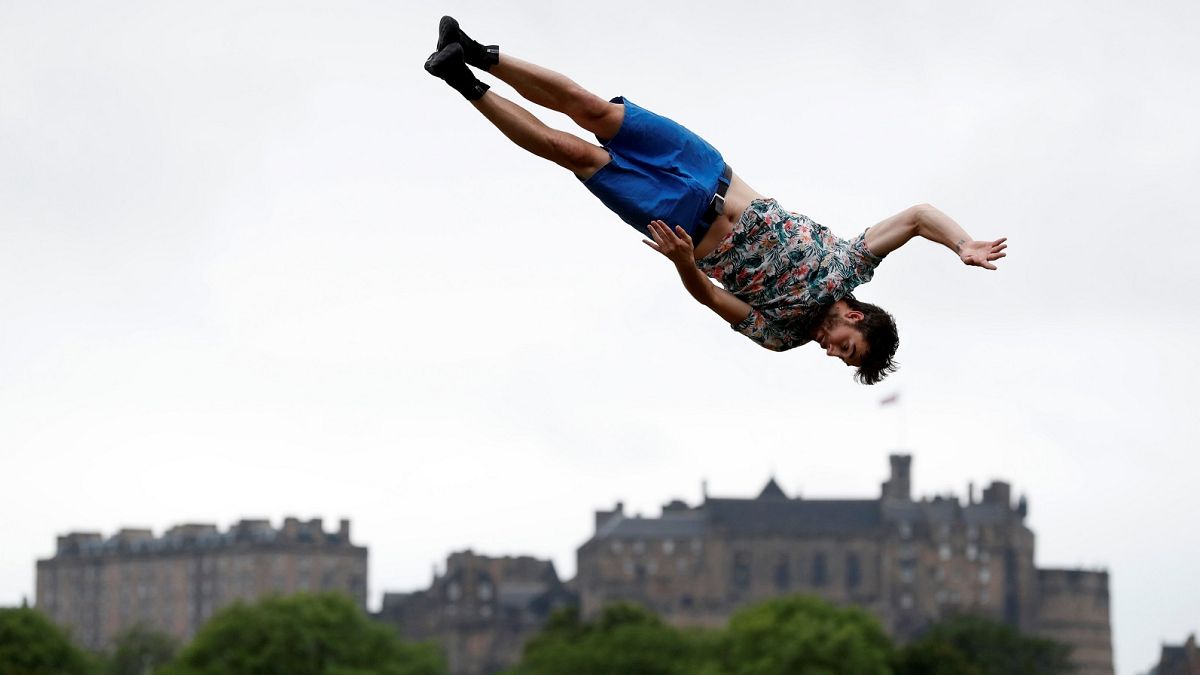While the Fringe is something Britain should be proud of, we must also recognise that a disproportionate number of the performers (and even the audience) will be white, middle class and wealthy.
With over 55,000 performances across 317 venues, the world’s largest arts festival, the Edinburgh Festival Fringe is in full swing this month. While the Fringe is something Britain should be proud of, we must also recognise that a disproportionate number of the performers (and even the audience) will be white, middle class and wealthy. Although Britain’s creative industry is more inclusive than many parts of mainland Europe, there is still unmet potential.
This matters because as long as the UK’s arts and media industry fail to reflect society, classism, racism and Islamophobia will continue to grow. This gap is being filled by grassroots producers and media outlets, but with a lack of access to opportunities, venues and funding, they are up against a well-oiled machine that has been conceived by and maintained for decades by Britain’s elite.
The UK should see diversity in its arts industry as a strategic strength. At a time when its global economic and political clout is objectively in decline (many Fringe artists have demanded to be paid in dollars or euros citing Brexit uncertainty), cultural soft power will be an increasingly essential tool for its future engagement with a diverse Europe, and an even more diverse world.
Britain’s cultural capital is drawn from more than just its flag and history. Media and art franchises - from James Bond and Harry Potter to the BBC itself - have come to define what the world associates with the UK. With almost half a million visitors each summer, The Edinburgh Fringe represents an incredible opportunity to reflect the rich cultural tapestry that makes Britain truly great. There is simply no other arts festival in Europe of a similar scale.
However, what the Fringe boasts in size, it lacks in diversity. It was established in 1947 at a time when post-war Britain was unapologetically monocultural in its arts and media - and little has changed in the 72 years since. Last year, mixed-race actor Layton Williams received an official apology after he was kicked out of a venue in a case of racial profiling, and other performers of colour regularly describe feeling lonely and vulnerable amongst the overwhelmingly white audience and performers.
In 2016, multi-award winning actor and rapper Riz Ahmed bemoaned the lack of opportunities in the UK arts industry for people of colour, going on to praise the US which, despite suffering greater racial prejudice and discrimination, regularly draws from a multicultural talent pool reflected across the sector, on stage and on screen.
More often than not, bigotry and racism is born of ignorance of the Other. It is harder to discriminate against those whose stories we connect with and relate to. Working diligently in the cultural space alongside allies has been an essential part of how Jewish Americans, African Americans and even the LGBT community, have humanised the once hostile narratives that surrounded them.
This same potential is present at the Fringe. Recent years have seen British Muslim Fringe performers like Tez Ilyas and Bilal Zafar launch promising careers that leverage authentic Muslim stories and tackle themes of racism and Islamophobia, but they are the exception that proves the rule.
The vast majority of Fringe performers have a background of privilege that affords them access to this exclusive space. It can cost a comedian over €20,000 to take a show to the Fringe - ironic for a festival that was established with the idea of inclusion at its heart. These costs also extend
to the audience, which is often as well-off as many of the performers. For instance, a basic hotel room during the Fringe can cost several hundred euros per night.
Indeed, the egalitarian spirit of the Fringe was quickly forgotten as the economics of the entertainment industry - and those privileged to run it - took control. It’s also no surprise that much of the most decorated talent in the UK arts and culture industry hail from the country’s most exclusive universities.
If Britain wants to remain relevant in a world that is pushing cultures closer together than ever before, its stages and screens should tap the rich cultural diversity of our communities. When our art scene and media reflect all our citizens, we will also go a long way in tackling the racism and bigotry that festers in exclusionary spaces.
Token representation is not enough. Change is needed at the top; from major broadcasters like the BBC to the organisers behind the Edinburgh Fringe. They needn't look far with grassroots outlets like British Muslim TV regularly platforming emerging talent and giving a voice to content creators that would otherwise be overlooked by the mainstream. It’s not just the Fringe that suffers as a result of its lack of representation, but rather the country as a whole.
A diverse world needs diverse talent and as long as cultural spaces remain bastions for the white middle class, we will all suffer - whether we realise it or not.
- Dr Bilal Hassam is Creative Director at British Muslim TV
__________
Are you a recognised expert in your field? At Euronews, we believe all views matter. Contact us at view@euronews.com to send pitches or submissions and be part of the conversation.
